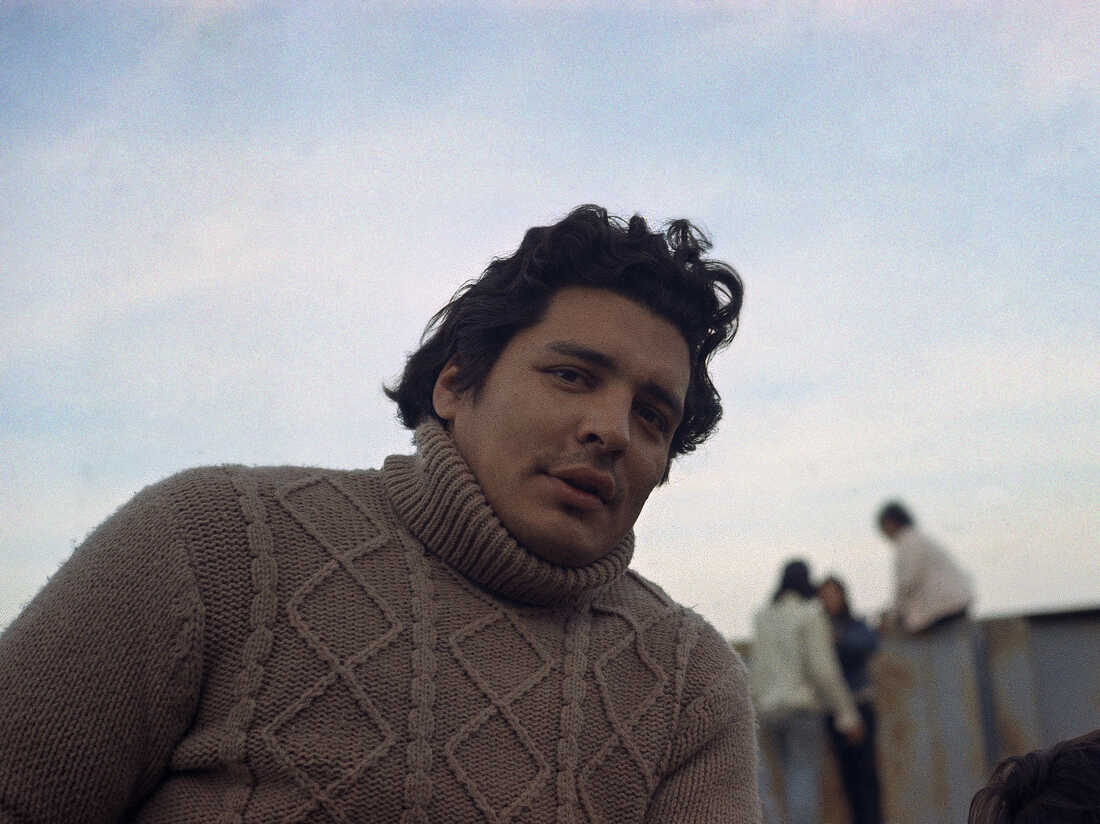The Life And Times Of Native American Activist Richard Oakes
The life and activism of Richard Oakes shaped the course of Native American civil rights in the 20th century. Here’s a closer look at his story.

Jun 20, 2024
Richard Oakes is remembered as one of the most influential figures in the Native American civil rights movement. A Mohawk activist and leader, Oakes was instrumental in several key protests, including the famous occupation of Alcatraz Island in 1969, which brought global attention to Indigenous issues in the United States.
His advocacy for land rights, cultural preservation, and Indigenous sovereignty inspired a generation of activists and set the foundation for future Native American movements. By examining his life, from his early years to his pivotal role in the movement, it becomes clear how Richard Oakes left an indelible mark on the fight for Native American justice and equality.
Early Life
Childhood And Education
Richard Oakes was born on May 22, 1942, in Akwesasne, a Mohawk reservation straddling the US-Canada border. Raised in a traditional Mohawk household, Oakes was deeply connected to his cultural roots from a young age. His early education took place on the reservation, where he learned about his heritage and the struggles faced by his people.
Early Influences
Growing up, Oakes was influenced by the stories of resistance and survival shared by his elders. These narratives fueled his passion for advocating Native American rights. He later moved to San Francisco, where he became involved in various social movements and continued his education.
Activism And Achievements
Alcatraz Occupation
One of Richard Oakes' most notable achievements was his leadership role in the occupation of Alcatraz Island. On November 20, 1969, Oakes, along with a group of Native American activists, occupied the island, asserting that it belonged to Native Americans under the Treaty of Fort Laramie. The occupation lasted for 19 months and brought significant national attention to the plight of Native Americans.
- Goals of the Occupation: The activists aimed to establish a cultural center, an ecological center, and an Indian university on the island.
- Impact: The occupation of Alcatraz was a turning point in the Native American civil rights movement, inspiring other indigenous activists and leading to policy changes.
Advocacy For Native American Education
Oakes was a strong advocate for Native American education. He believed that education was a powerful tool for empowerment and worked tirelessly to improve educational opportunities for Native American youth.
- San Francisco State University: Oakes played a pivotal role in the establishment of the Native American Studies program at San Francisco State University, ensuring that Native American history and culture were adequately represented in academia.
- Indian Child Welfare Act: His activism also contributed to the passage of the Indian Child Welfare Act of 1978, which aimed to keep Native American children with their families and communities.
Other Activist Efforts
Beyond Alcatraz, Oakes was involved in various protests and movements advocating for Native American rights. He worked with organizations such as the American Indian Movement (AIM) and participated in protests against the exploitation of Native American lands and resources.
Personal Life
Family
Richard Oakes married Annie Mirandy and had several children. His family was deeply involved in his activism, with his children participating in various protests and events. Tragically, his daughter, Yvonne Oakes, died in an accident on Alcatraz Island, a loss that profoundly affected him.
Later Years And Legacy
In 1972, Richard Oakes was tragically murdered in Sonoma, California. His death was a significant loss to the Native American community, but his legacy continues to inspire new generations of activists.
- Recognition: Oakes has been posthumously honored for his contributions to the Native American civil rights movement. His story is taught in schools, and several memorials and scholarships bear his name.
- Influence: His work laid the groundwork for future activism, and his legacy is a testament to the power of perseverance and dedication in the fight for justice.
FAQs
Who Was Richard Oakes?
Richard Oakes was a Native American activist known for his leadership in the Alcatraz Island occupation and his advocacy for Native American rights and education.
What Was The Significance Of The Alcatraz Occupation?
The Alcatraz occupation, led by Richard Oakes and other Native American activists, was significant because it drew national attention to Native American issues and inspired further activism and policy changes.
What Contributions Did Richard Oakes Make To Native American Education?
Richard Oakes was instrumental in establishing the Native American Studies program at San Francisco State University and advocating for policies like the Indian Child Welfare Act, which aimed to preserve Native American culture and communities.
How Did Richard Oakes' Activism Impact Native American Rights?
Richard Oakes' activism played a crucial role in raising awareness about Native American rights, leading to greater representation, policy changes, and increased opportunities for Native Americans in various sectors.
What Is Richard Oakes' Legacy?
Richard Oakes' legacy is one of courage and dedication to the fight for Native American rights. His work continues to inspire activists and has left a lasting impact on Native American communities.
Conclusion
Richard Oakes was a pioneering figure in the Native American civil rights movement. His leadership in the Alcatraz occupation and his tireless advocacy for Native American rights and education have left an indelible mark on history. Oakes' legacy continues to inspire and guide new generations of activists in their pursuit of justice and equality for Native American communities. His life and work serve as a powerful reminder of the importance of standing up for one's rights and heritage.